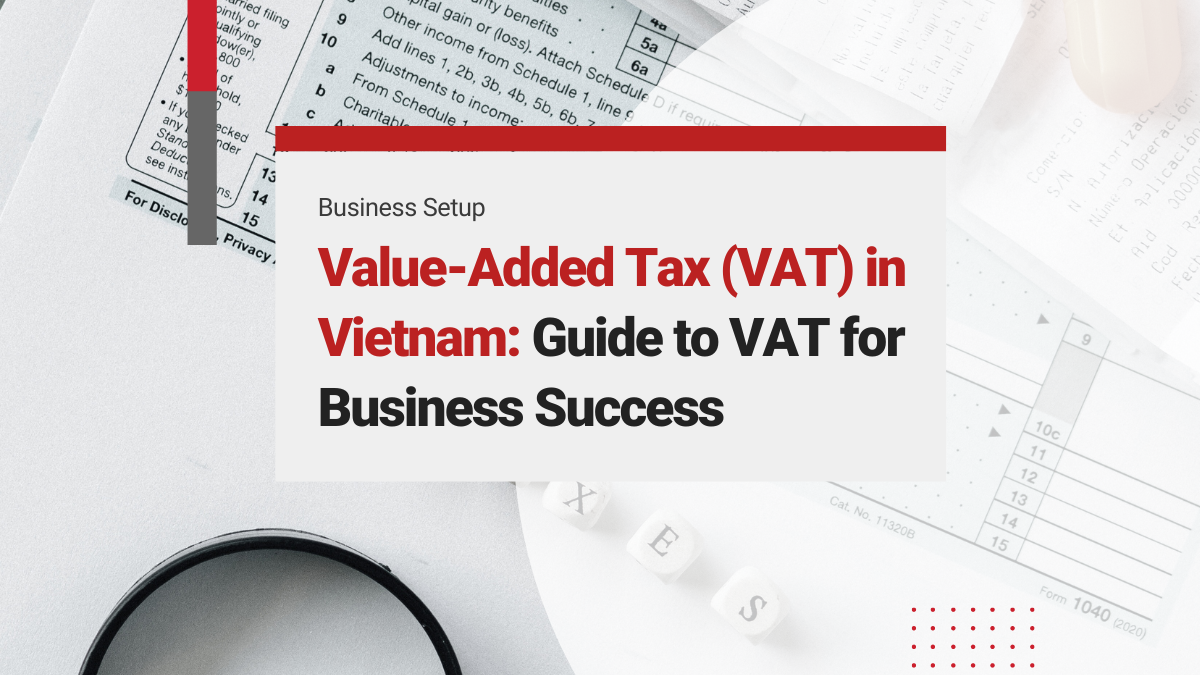The Just Energy Transition Partnership (JETP) is a global initiative designed to help Vietnam transition from coal dependency to renewable energy. Backed by financial support from developed nations, the agreement aims to reduce emissions, enhance energy sustainability, and promote green economic growth. As Vietnam accelerates its transition toward sustainable growth, many investors are exploring company incorporation in Vietnam to participate in the expanding green energy and clean technology sectors.
In this article, we’ll explore the key components of Vietnam’s JETP agreement—its funding commitments, ambitious energy targets, and the transformative impact it could have on the country’s clean energy future.
Overview of the JETP Agreement
The Just Energy Transition Partnership (JETP) is a vital initiative aimed at decarbonizing energy systems in countries like Vietnam, which are heavily reliant on coal. This partnership is crucial for Vietnam’s shift toward a greener economy and for significantly reducing greenhouse gas emissions. With substantial financial backing from developed countries, the JETP provides the necessary resources to support this ambitious transition.
Beyond environmental benefits, the JETP fosters economic development and enhances energy security in Vietnam. By supporting the shift to green energy, the partnership helps address critical environmental concerns while also promoting long-term sustainability and resilience in the energy sector.
Read Related: Vietnam Renewable Energy: Advantages and Growth in the Green Energy Industry
Key Components of Vietnam’s JETP Agreement
Vietnam’s JETP agreement, featuring substantial financial commitments, ambitious emission reduction targets, and active involvement from the International Partners Group (IPG), creates a comprehensive framework to transform the country’s energy landscape and support its green transition.
Financial Commitments
Financial commitments are at the core of Vietnam’s JETP agreement, with a total of US$15.5 billion expected to be mobilized over three to five years. This amount is evenly split between the public and private sectors, each contributing US$7.75 billion. The financing mechanisms include grants, low-interest loans, and investments from both public and private stakeholders aimed at facilitating the transition. Organizations like the Glasgow Financial Alliance play a pivotal role in mobilizing private finance, ensuring that foreign investors and private sector engagement are integral to the process.
Emission Reduction Targets
Vietnam’s JETP agreement sets ambitious emission reduction targets to align with global energy transition goals. Vietnam plans to increase renewable energy to 47% and reduce coal power capacity to 30.2 GW by 2030. Key projects include transitioning coal-fired power plants and investing in offshore wind initiatives to diversify renewable energy sources. These targets aim to improve energy efficiency and achieve net-zero emissions.
International Partners Group (IPG)
The International Partners Group (IPG) supports Vietnam’s energy transition. Comprising countries like the EU, UK, USA, Japan, and others, the IPG provides oversight and ensures the effective implementation of the JETP. A secretariat composed of IPG members and Vietnamese authorities will oversee the progress, ensuring that the partnership’s goals are met.
Regulatory Framework Guiding the JETP
Effective regulatory frameworks guide Vietnam’s energy transition. The JETP agreement is supported by several key pieces of legislation that inform the development of the Resource Mobilization Plan (RMP). Amendments to the Law on Electricity allow foreign investors to develop and operate the transmission grid, promoting greater liberalization in the renewable energy sector. Despite these advancements, challenges such as inadequate legal frameworks and insufficient capacity of authorities persist, necessitating continuous regulatory reforms.
Consultation with various stakeholders, including media, NGOs, and civil society, is mandated by the JETP agreement to ensure inclusivity and transparency. This approach is designed to address the technical and social aspects of the transition while protecting vulnerable groups. However, the restrictive political environment in Vietnam complicates the involvement of civil society in energy policy-making, highlighting the need for a more inclusive and participatory process.
Read Related: Vietnam’s Carbon Pricing Plan: Reducing Carbon Emissions from Air Travel and Other Sources by 2050
Power Development Plan VIII (PDP8)
The Power Development Plan VIII (PDP8) is a cornerstone of Vietnam’s strategy for energy transition. Adopted in May 2023, PDP8 aims to achieve zero coal power by 2050 and targets renewable energy contributions of 47% by 2030 and 70% by 2050.
The anticipated funding required for Vietnam’s energy sector from 2031 to 2050 ranges from US$399.2 billion to US$523.1 billion. PDP8 considers the JETP as a crucial solution for supporting Vietnam’s energy transition efforts.
National Energy Master Plan (NEMP)
The National Energy Master Plan (NEMP) outlines Vietnam’s long-term energy strategy, focusing on renewable energy development and emission reductions. Vietnam targets 47% renewable energy generation, 170 MtCO2e emissions, and reduced coal power capacity by 2030.
The plan also proposes restructuring coal-fired plants to improve efficiency and incentivize operational flexibility, supporting the broader goals of the JETP.
Ready to Power Vietnam’s Green Future? Check out InCorp Vietnam’s Incorporation Services
Financing Mechanisms for the JETP
Financing mechanisms are critical to the success of Vietnam’s JETP. The Resource Mobilization Plan (RMP) aims to generate around US$8 billion through public finance and an additional US$7.5 billion from private investments. These mechanisms include grants, concessional loans, and loans from commercial development finance institutions, all designed to support energy transition projects.
Public Sector Finance
Public sector finance plays a crucial role in Vietnam’s JETP, with a commitment of US$7.75 billion provided at favorable rates. The financing structure incorporates grants, concessional loans, and loans from multilateral and national development finance institutions. These funds are essential for meeting the conditions outlined in PDP8, including achieving zero coal power by 2050.
Private Investment
Private investment is essential to bridging the funding gap in Vietnam’s JETP from 2023 to 2030, with the Glasgow Financial Alliance for Net Zero (GFANZ) playing a pivotal role in mobilizing private-sector finance and ensuring significant foreign investor participation. The Resource Mobilization Plan emphasizes the critical importance of private sector engagement in achieving the JETP’s goals.
Financial Instruments
The JETP-RMP outlines various financial instruments, including grants, concessional loans, and market-rate loans, to mobilize the necessary funding within three to five years. Key initiatives, such as a pilot Battery Energy Storage System (BESS) project and surplus tariffs for rooftop solar systems, are designed to enhance energy management and boost solar energy uptake through direct power purchase agreements.
Short-Term Priorities of the JETP
The JETP’s short-term priorities include projects slated for 2024 implementation. These include enhancements to the power transmission grid, energy storage systems, and offshore wind power initiatives.
Power Transmission Grid Projects
Investment in power transmission grid infrastructure projects is crucial for distributing renewable energy across Vietnam’s expanding energy landscape. Upgrading existing grid systems and constructing new transmission lines will increase grid reliability, reduce energy wastage, and facilitate the incorporation of more renewable energy into the national mix.
Battery and Pumped Storage
Energy storage systems, including battery storage and pumped storage hydroelectricity, are vital for ensuring a stable and reliable energy supply. These systems help balance supply and demand, mitigate fluctuations in energy production, and enhance grid reliability.
Offshore Wind Power Development
Vietnam is set to significantly increase its offshore wind capacity as part of its commitment to renewable energy. The country targets a total offshore wind capacity of 7 GW by 2030, reflecting its dedication to sustainable energy projects. Significant investments in offshore wind projects are anticipated, supported by international partners committed to funding Vietnam’s renewable energy initiatives.
Read Related: Supply Chain Sustainability in Vietnam: Driving Growth And Responsibility
Mid-Term Goals of the JETP
The mid-term goals of the JETP emphasize strategic priorities and targets for the period beyond 2024. These include enhancing energy efficiency by 10% by 2030, expanding solar power capacity to 25-30 GW, and phasing out coal power through restructuring power purchase agreements and establishing a carbon market.
Energy Efficiency Initiatives
Energy efficiency plays a key role in Vietnam’s JETP, with initiatives such as the Smart and Energy Efficiency City Project (SEECP) focusing on improving energy use in public buildings. The project aims to reduce power demand by 10% by 2030, contributing significantly to the country’s sustainability goals.
Solar Power Expansion
Vietnam aims to add 25-30 GW of solar PV capacity by 2030, a target that necessitates strong regulatory frameworks for power purchase agreements and solar plant tenders.
Coal Phase-Out Projects
Coal phase-out projects are a central focus of Vietnam’s JETP, featuring reskilling programs and educational opportunities to help workers transition from fossil fuel industries to the growing renewable energy sector.
Social Aspects of the Just Energy Transition
The JETP highlights the need to address social aspects for a fair energy transition, focusing on rectifying historical injustices, preventing new ones, and engaging diverse stakeholders throughout the process. However, local climate advocates in Vietnam face threats and legal challenges, which hinder their participation in critical energy transition discussions.
Worker Reskilling and Inclusion
Worker reskilling and inclusion are critical for Vietnam’s energy transition. Extensive retraining programs are needed for workers moving from fossil fuel industries to renewable energy sectors. The JETP’s political declaration highlights the importance of expanding green jobs and enhancing employment opportunities for affected workers. A just transition framework is proposed to identify and mitigate negative impacts while uncovering new opportunities for vulnerable groups.
Affordability and Land Rights
Energy affordability and addressing land rights are crucial for a just energy transition in Vietnam. The transition to renewable energy must ensure that energy remains affordable for all consumers and that land rights issues, including displacement and compensation, are addressed.
Challenges and Barriers to Implementation
Implementing the JETP in Vietnam faces several challenges and barriers, including political challenges, legal framework inadequacies, and grid capacity issues. Effective implementation and efficient use of funds are essential for the success of the JETP.
Read More: Top 10 Challenges of Doing Business in Vietnam: Notes and Advice for Foreign Investors
Political Will and Vested Interests
Political will and vested interests pose significant challenges to Vietnam’s Just Energy Transition. The restrictive political environment complicates stakeholder engagement, and resistant vested interests may prioritize certain agendas over national energy goals.
Grid Capacity and Curtailment
Grid capacity and curtailment are major technical challenges for Vietnam’s energy transition. The inability to keep up with the increasing capacities of renewable energy sources results in curtailment, impacting the overall effectiveness of the transition.
Moving Forward with Vietnam’s JETP
Looking ahead, Vietnam’s JETP success relies on effective project execution and strategic fund management from the International Partners Group. International partners and firms in the renewable energy sector should consider entering the Vietnamese market to support the country’s green transition.
How InCorp Vietnam Can Help?
InCorp Vietnam supports companies seeking to enter Vietnam’s clean energy sector, providing essential assistance with understanding local regulations and navigating the renewable energy landscape. Their deep knowledge of local laws and industry dynamics makes it easier for businesses to get started and adapt to the ongoing energy transition.
Additionally, InCorp Vietnam helps connect companies with international partners and offers valuable guidance on investing in sustainable projects. This support enables businesses to actively contribute to Vietnam’s shift toward a more environmentally friendly and sustainable energy system.

clients worldwide

professional staff

incorporated entities in 10 years

compliance transactions yearly
Learn the Right Setup for Business
Expansion in the Vietnam
Frequently Asked Questions
What is the Just Energy Transition Partnership (JETP)?
- The Just Energy Transition Partnership (JETP) is an initiative designed to accelerate the decarbonization of energy systems in coal-dependent countries like Vietnam, supported financially by developed nations. This partnership aims to foster a transition to sustainable energy sources.
How much financial commitment is involved in Vietnam's JETP?
- The financial commitment for Vietnam's JETP amounts to US$15.5 billion, to be mobilized over three to five years with equal contributions from the public and private sectors.
What are the emission reduction targets under Vietnam's JETP?
- Vietnam's Just Energy Transition Partnership (JETP) targets an increase in renewable energy to 47% of its energy mix by 2030 and a reduction of coal power capacity from 37 GW to 30.2 GW. This commitment reflects Vietnam's dedication to sustainable energy development.
Who are the members of the International Partners Group (IPG) supporting Vietnam's JETP?
- The International Partners Group (IPG) supporting Vietnam's Just Energy Transition Partnership (JETP) comprises the EU, UK, USA, Japan, Germany, France, Italy, Canada, Denmark, and Norway, who collectively oversee and support the initiative's implementation.






